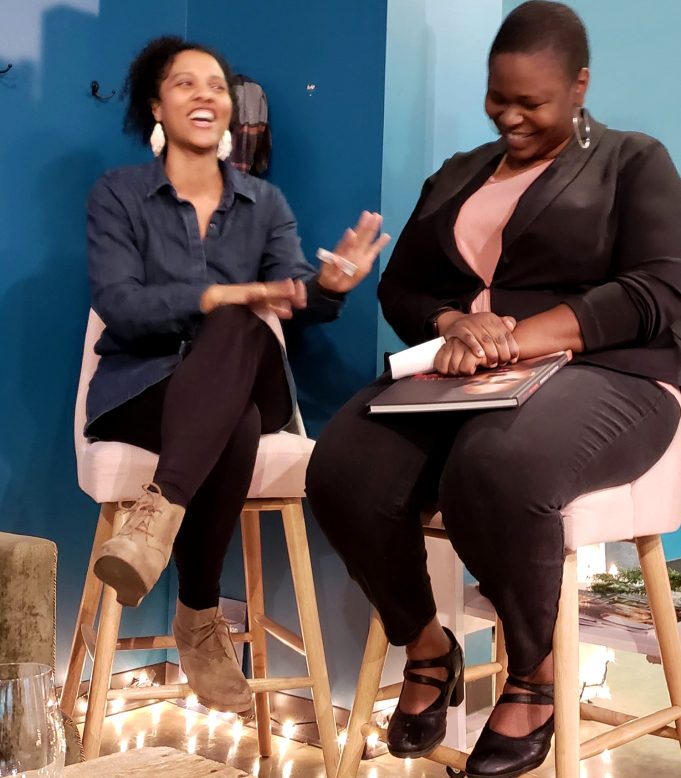“Infamous Mothers” author Sagashus Levingston and Marie Justice, who directed the stage adaptation that recently had a successful run at the Bartell Theatre in downtown Madison, sat down at Table Wine on Madison’s east side Dec. 6 to discuss black womanhood and allyship over wine, cheese and sandwich wraps.
About 30 people gathered to listen to Levingston and Justice speak about the “Infamous Mothers” book and play. Most of the attendees were white women, who gathered with a few men and some of Levingston’s close friends.
“Too often we say giving a voice to the voiceless. People have voices, they just need someone to pass the mic,” Justice said.
Between reading the testimonies of the women who shared their story in “Infamous Mothers,” Justice and Levingston broke down some of the takeaways from the play. One of the most notable lessons for white allies came from the inclusion of the only white character, Max.
“It was perfectly modeled,” Justice said. “I love how it plays out with the audience.”
In the scene, a white lesbian character named Max performs Janet X.’s poem in the book as a rap and a black woman named Akeesha calls her out on it. Levingston said the play allowed some of the questions white women might have to be filtered through Max.
“It was very important that the play itself supported the concerns of the community,” she said.

Levingston said white audiences had to sit through their discomfort after laughing at Max’s performance in order to understand what it means to appropriate someone’s testimony for entertainment. Justice said she knows how important it is that these stories are told and heard, not minimized.
“In reading these stories, I’m still telling my own story,” Levingston said.
She said we know respectable black women like Michelle Obama who are married and have done things the “right way” exist, but she did not see other narratives of women who did not.
Levingston said that these women are sometimes more qualified to be leaders because of their experiences, but are often dismissed.
“I think we need a diverse representation of what leadership can look like,” she said.
Justice said part of being a good ally is sharing resources, building an infrastructure and creating opportunity. Both Levingston and Justice consider these things in their work.
“I think I went through so much hurt as a kid and young adult, I decided I was going to turn every hurt into something beautiful,” Levingston said.
She said she plans on creating a “third space” for mothers from all backgrounds to develop themselves and support each other. She plans on releasing more details about this space along with news about the upcoming “Infamous Fathers” project in 2019.










